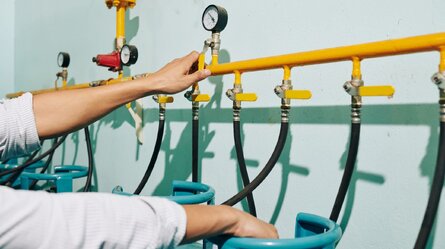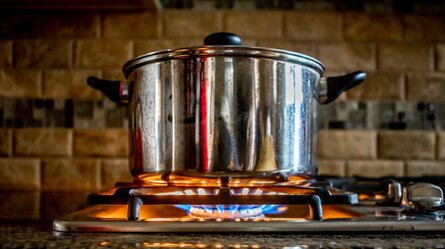Gas-related incidents aren’t just inconvenient—they can be downright dangerous. Faulty or poorly maintained gas pipes can put lives and property at serious risk, and the last thing anyone wants is a costly repair bill on top of it all.
The good news? A little preventative maintenance goes a long way. Regular check-ups and servicing help catch wear and tear early before it turns into a hazardous leak or a complete system failure.
Plus, staying on top of maintenance can actually save you money in the long run by avoiding pricey emergency repairs and keeping your gas pipes in good shape for longer.
Investing in professional maintenance isn’t just a smart move—it’s peace of mind. Don’t wait for a crisis to strike. Take action now to keep your gas system running safely and reliably.
Gas Pipe Maintenance: What’s Involved?
Keeping your gas system safe and efficient isn’t just about fixing problems when they pop up—it’s about preventing them in the first place. Regular gas pipe maintenance not only helps you dodge costly repairs but also keeps your household safe from potential hazards. Let’s take a closer look at what preventative maintenance really means.
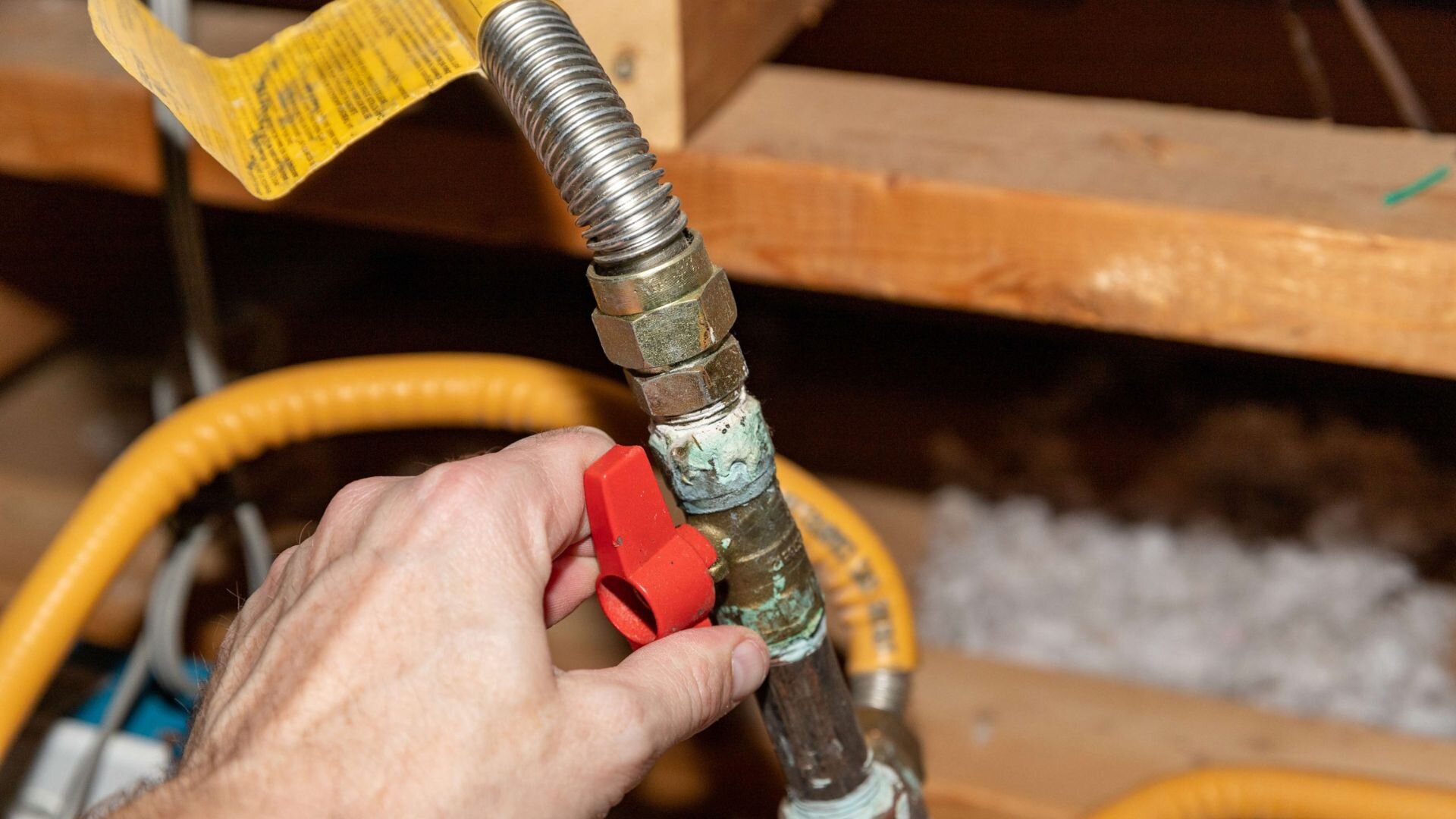
What Is Preventative Maintenance for Gas Pipes?
Preventative maintenance is all about staying one step ahead. It means carrying out regular inspections, making timely repairs, and getting professional servicing to keep your gas system running smoothly and safely.
Whether it’s your natural gas lines, gas supply systems, or appliances like stoves and water heaters, qualified professionals make sure everything’s in top shape. Plus, keeping things well-maintained can help you save on utility bills and improve ventilation.
Key Parts of Gas Pipe Maintenance
Regular inspections are your first line of defence against gas leaks and other hazards. Typically done once a year, these inspections include gas leak detection, pressure tests, and thorough checks of gas pipelines and appliances.
Pros look out for warning signs like hissing sounds, strange gas smells (like rotten eggs), or gas fumes. They’ll also inspect carbon monoxide detectors and gas meters to ensure everything’s properly ventilated and up to code.
It’s not just about the big stuff, either. Smaller maintenance tasks—like checking gas detectors, insulation, and even connections on outdoor grills—can make a big difference in safety and compliance. It’s all about covering the basics to keep your system working right.
Maintenance vs. Repairs: What’s the Difference?
Think of maintenance as your safety net—it’s designed to prevent issues before they happen. Repairs, on the other hand, tackle problems that have already popped up.
By sticking to a regular maintenance routine, you can catch early warning signs of gas issues before they turn into major headaches or safety risks. That means less chance of fire hazards or carbon monoxide leaks and more peace of mind.
If you ever suspect a gas leak—like catching a whiff of gas fumes or hearing a suspicious hissing noise—don’t take any chances. Get out straight away, avoid using electrical devices or flicking on light switches, and call emergency services. Always rely on licensed professionals for gas maintenance to ensure your safety and keep everything running smoothly.
Why Preventative Maintenance Is So Important for Gas Safety
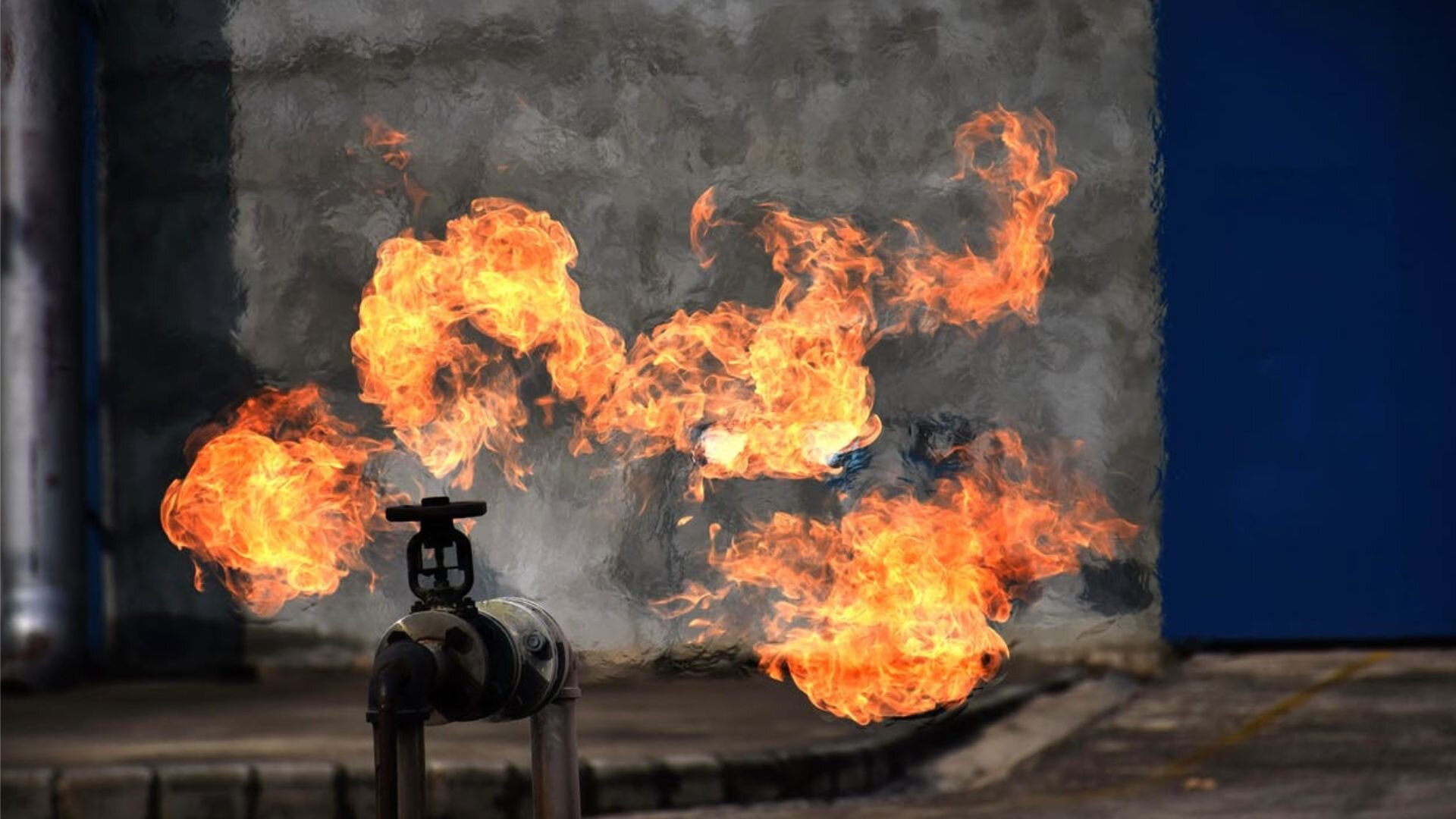
Letting gas pipe maintenance slide isn’t just risky—it can be downright deadly. Gas leaks, explosions, and exposure to harmful gases like carbon monoxide are all potential consequences of neglecting routine upkeep.
Not only does it put lives and property at risk, but it also leaves you on the wrong side of the law. In Australia, keeping gas lines and gas-powered appliances properly maintained isn’t just good practice—it’s required by law. Following local building codes and sticking to a maintenance routine means keeping your gas supply safe and efficient.
The reality is, tragic incidents have happened when gas line maintenance was overlooked. Faulty pipelines have led to gas leaks, fires, explosions, and even carbon monoxide poisoning.
These disasters are a sobering reminder of why regular maintenance and routine inspections are non-negotiable. Whether at home or in a commercial setting, staying on top of gas system maintenance is essential for keeping everyone safe.
Key Preventative Maintenance Tips for Gas Pipes
Keeping your gas pipes in good shape doesn’t have to be a hassle—it’s all about staying proactive. Regular visual inspections are your first line of defence, whether you’re checking gas lines, appliances, or detectors.
Be on the lookout for warning signs like hissing noises, odd gas smells (think rotten eggs), or a sudden drop in gas efficiency. Spotting these issues early can mean the difference between a quick fix and a full-blown disaster.
One of the smartest moves you can make is investing in leak detection equipment and gas detectors. These gadgets are lifesavers when it comes to catching problems before they escalate.
Even better, book an annual inspection with a licensed professional—they’ll handle thorough leak detection, pressure testing, and double-check that everything’s installed properly. It’s worth it to avoid hefty repair bills and the stress of gas line failures.
Don’t forget about your gas-powered appliances either! Things like gas stoves, water heaters, and outdoor grills need regular maintenance to stay efficient and safe.
Keeping them in top condition not only lowers your energy bills but also helps prevent sneaky gas leaks. Make sure ventilation and insulation are up to scratch too—that way, you’re covered against gas buildup and other risks.
Professional Maintenance vs. DIY: Why the Experts Are Worth It
When it comes to gas pipes, cutting corners with DIY maintenance just isn’t worth the risk. Sure, there are a few small tasks you can handle yourself, like turning off the gas supply, but when it comes to serious stuff, it’s best to call in the pros.
Licensed professionals have the know-how to deal with gas line work safely and keep everything up to code. Messing around with gas pipes yourself isn’t just risky—it could land you in hot water legally, too.
Professional maintenance services aren’t just about ticking boxes—they’re about keeping you safe. Experts don’t just fix problems; they spot potential issues early through thorough inspections and routine maintenance.
They’ll make sure your gas system is properly ventilated, pressure-tested, and compliant with local building codes. Leaving it to the professionals means peace of mind, knowing your gas system is in safe hands.
Common Gas Pipe Issues and How to Stay Ahead of Them
Gas pipes aren’t invincible—they face plenty of challenges over time. Corrosion, worn-out joints, pressure inconsistencies, and dodgy installations are just a few of the usual suspects.
If left unchecked, these issues can lead to gas leaks and dangerous gas build-up, putting your safety at risk. Regular maintenance is your best line of defence, helping to catch problems like corrosion and joint damage before they spiral into full-blown emergencies.
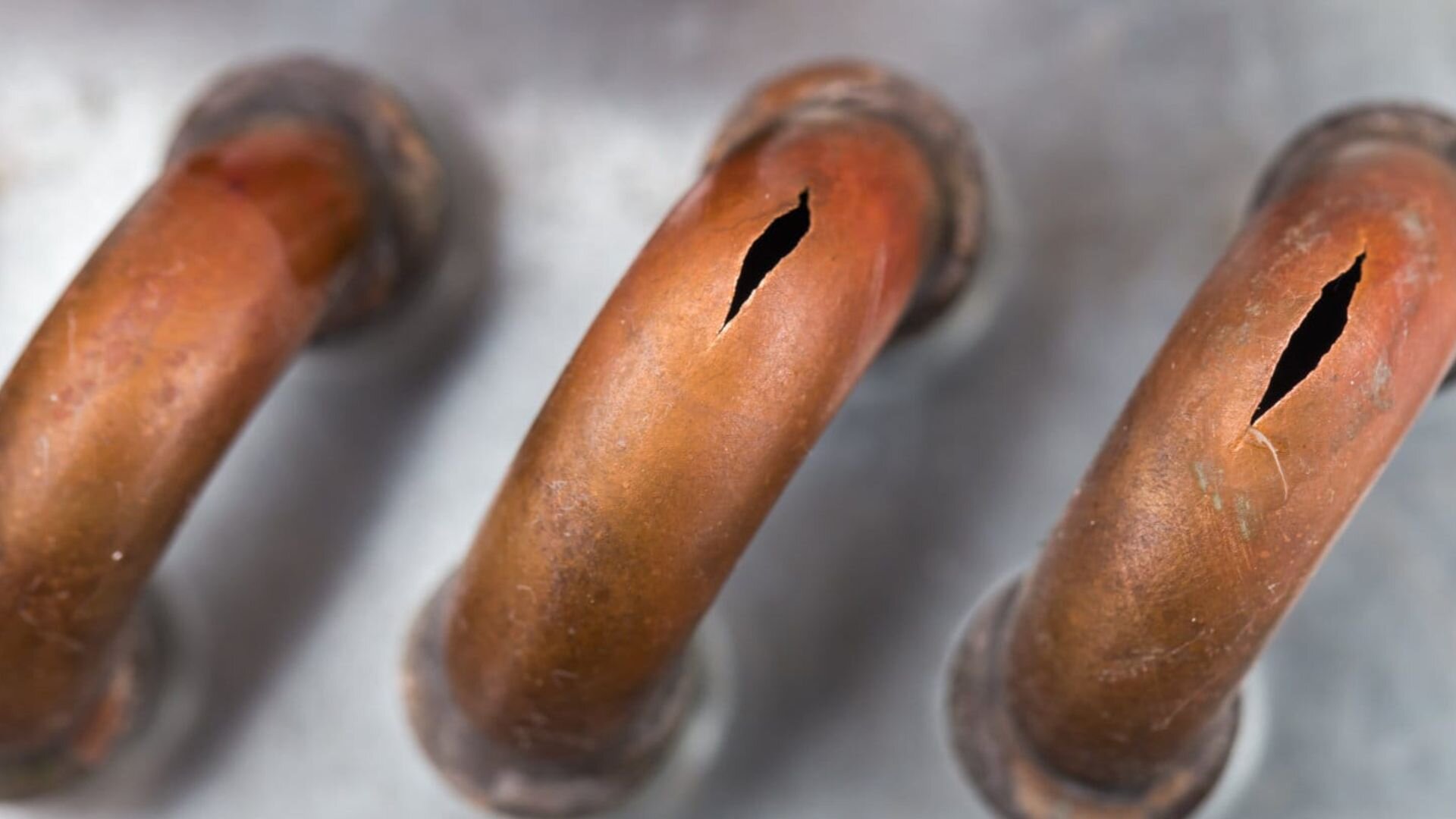
Corrosion: The Silent Threat
One of the most common issues with gas pipes is corrosion. Pipes exposed to moisture, chemicals, or extreme weather conditions are particularly vulnerable.
Corrosion slowly eats away at the metal, weakening the structure and increasing the likelihood of gas leaks. If ignored, it can lead to dangerous situations, including fires and explosions.
Regular inspections help identify early signs of rust or corrosion, allowing for timely repairs or replacements.
Joint Deterioration: Weak Links in Your Gas Line
Joints and fittings are critical points in any gas system, but they’re also prone to wear and tear. Over time, sealants and connectors can degrade or loosen, creating gaps that allow gas to escape.
This deterioration often goes unnoticed until a leak occurs, making routine maintenance essential. Professionals can spot these issues early on and take the necessary steps to secure joints and fittings, minimising risks.
Pressure Inconsistencies: A Warning Sign
Fluctuating gas pressure can indicate deeper issues within your gas system. Inconsistent pressure may result from faulty regulators, blockages, or leaks along the pipeline.
You might notice reduced efficiency in your gas appliances or even complete system failures. Regular maintenance involves pressure testing to ensure the system is operating at safe and consistent levels, giving you peace of mind.
Faulty Installations: Avoiding DIY Disasters
Sometimes, the problem starts at installation. Poorly fitted pipes or incorrect setups can cause ongoing issues, from pressure drops to gas leaks.
While DIY installations might seem cost-effective at first, they often lead to more expensive repairs down the line. Always hire licensed professionals for gas pipe installation and maintenance to ensure everything is up to code and safe.
Keep Your Gas Pipes Safe and Sound!
Why take chances with your gas pipes? Neglecting them can put your family and property at serious risk.
At Woolf Plumbing, we’re all about making sure your gas systems are running safely and smoothly. Our licensed pros handle everything—from thorough inspections to timely repairs and regular maintenance—so you can breathe easy knowing your gas lines are in top shape.
Got concerns or just want peace of mind? Give Woolf Plumbing a call today to book a maintenance check. Let us take care of your gas pipes so you don’t have to worry about a thing!



